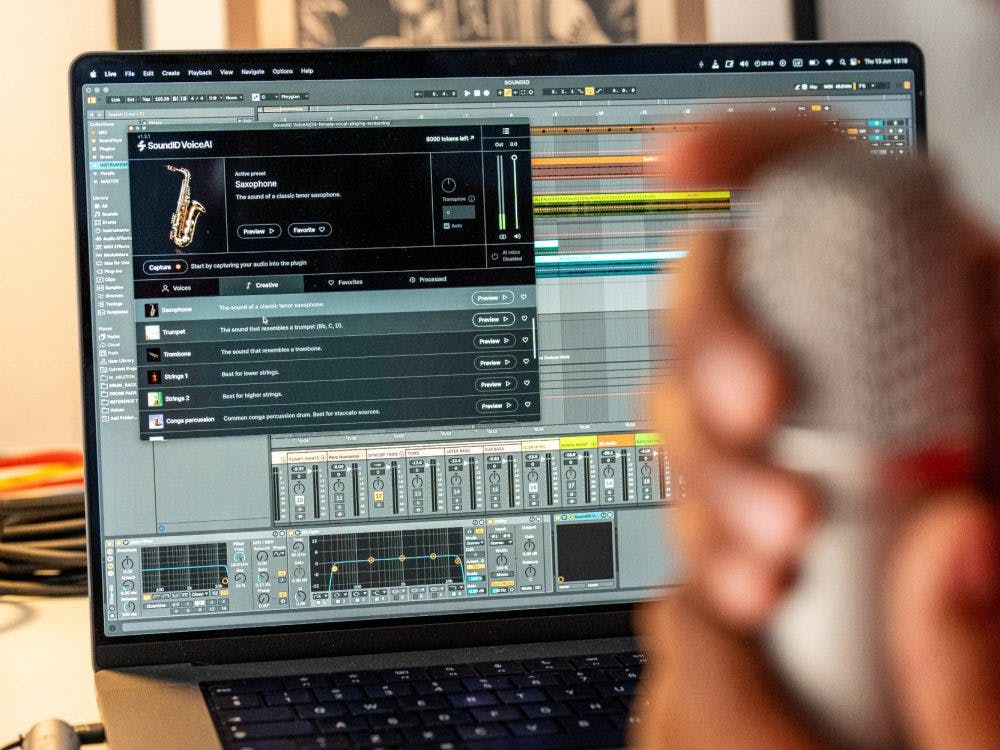The ethical guidelines for using AI-generated vocals in music centre on three core principles: obtaining proper consent when replicating existing voices, maintaining transparency with audiences about synthetic vocal elements, and respecting artist rights in commercial applications. These guidelines help creators navigate the rapidly evolving landscape of artificial intelligence music whilst maintaining integrity and avoiding potential legal issues.
Understanding AI vocals and why ethics matter in music
AI-generated vocals represent a significant shift in digital music creation, offering producers unprecedented creative possibilities through vocal synthesis technology. These tools can transform humming into professional-sounding vocals, create backing harmonies from a single voice, or even generate entirely synthetic vocal performances.
The ethical considerations have become important because AI voice technology has democratised vocal production. What once required expensive studio sessions with multiple singers can now be accomplished with AI music tools. However, this accessibility raises questions about consent, attribution, and fair compensation for artists whose voices might be replicated.
The music industry faces new challenges as vocal cloning ethics intersect with traditional copyright and personality rights. Producers must balance creative freedom with respect for existing artists and transparent communication with their audiences.
What are AI-generated vocals and how do they work?
AI-generated vocals use machine learning algorithms to analyse and recreate human vocal characteristics, including tone, pitch, and articulation patterns. The technology processes input audio through neural networks trained on extensive vocal datasets to produce synthetic vocals that can mimic specific voice types or create entirely new vocal personas.
Modern AI voice technology offers several approaches to vocal synthesis. Some tools focus on transforming existing vocal recordings by changing their characteristics, whilst others generate completely artificial voices from text or musical input. The most effective systems work with dry, unprocessed vocals recorded without reverberation or excessive background noise.
These systems typically require specific input conditions for optimal results. Harmonically rich sources like clean vocals or instruments within the human vocal range produce the best outcomes, whilst polyphonic sources or heavily processed audio can yield unpredictable results.
Do you need permission to use someone’s voice with AI?
Yes, you typically need explicit permission when using AI to replicate or closely mimic an identifiable person’s voice, especially for commercial purposes. This requirement stems from personality rights and potential copyright protections that vary by jurisdiction.
The legal landscape around vocal cloning ethics continues to evolve, but several principles are emerging. Using someone’s distinctive vocal characteristics without consent could violate their right of publicity, particularly if the synthetic voice is recognisably theirs. This applies whether you’re directly sampling their recordings or training AI models on their vocal patterns.
For commercial releases, obtaining written consent becomes even more important. Many jurisdictions recognise voice as part of an individual’s personality rights, similar to their likeness or name. Professional practice suggests documenting any permissions clearly and considering fair compensation when using someone’s vocal characteristics as the foundation for AI-generated content.
How should you disclose AI-generated vocals to listeners?
Transparency with your audience builds trust and respects their right to understand how music is created. Best practice involves clearly crediting AI-generated vocal elements in your releases, whether through liner notes, streaming platform descriptions, or accompanying documentation.
The level of disclosure can vary based on how extensively AI vocals are used. For entirely synthetic vocal performances, explicit labelling helps set appropriate expectations. When AI enhances or modifies human vocals, noting the technological assistance maintains transparency whilst acknowledging the human contribution.
Consider your audience’s perspective when crafting these disclosures. Music fans increasingly appreciate understanding the creative process, and transparent communication about AI involvement can enhance rather than diminish appreciation for the artistic choices involved.
What are the boundaries for commercial use of AI vocals?
Commercial applications of AI-generated vocals require careful consideration of artist rights, fair compensation, and market impact. The primary boundary involves ensuring your use doesn’t unfairly compete with or replace human vocalists without appropriate acknowledgement or compensation.
When using AI vocals commercially, consider whether your application might harm the livelihood of human performers. Responsible commercial applications often involve using AI as a creative tool alongside human artistry rather than as a complete replacement. This might include creating demo versions, generating backing vocals, or exploring creative concepts before involving human performers.
Fair compensation becomes relevant when AI vocals are based on or trained using existing artists’ work. Even when legally permissible, ethical practice may involve sharing revenue or providing credit that acknowledges the human contribution to the AI’s capabilities.
Building responsible practices for AI vocals in your music
Developing ethical guidelines for your AI vocal use starts with establishing clear principles around consent, transparency, and respect for human artistry. Create a framework that considers both legal requirements and broader ethical implications of your creative choices.
Document your processes and maintain records of any permissions obtained. When working with AI vocal technology, consider how your use aligns with your values as an artist and your relationship with your audience. Responsible practices often involve treating AI as a collaborative tool rather than a replacement for human creativity.
Stay informed about evolving industry standards and legal requirements in your jurisdiction. The ethics in music production continue developing as technology advances, and maintaining awareness helps ensure your practices remain both legally compliant and ethically sound.
As AI voice technology becomes increasingly sophisticated, we’re committed to supporting creators who want to explore these tools responsibly. The key lies in balancing creative innovation with respect for artistic integrity and transparent communication with audiences who support your music.
If you’re ready to get started, check out VoiceAI today.



